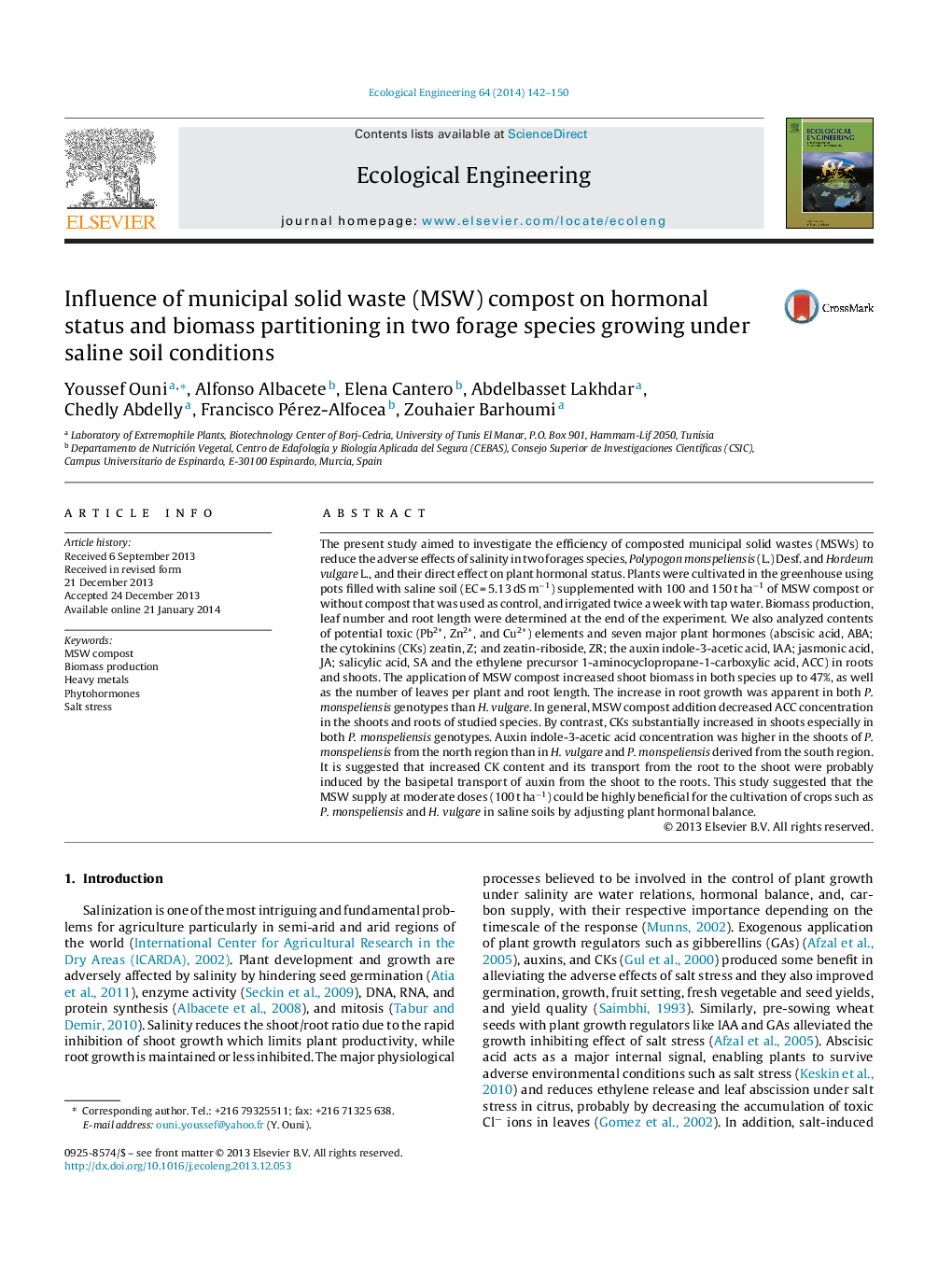| Article ID | Journal | Published Year | Pages | File Type |
|---|---|---|---|---|
| 4389573 | Ecological Engineering | 2017 | 9 Pages |
Abstract
The present study aimed to investigate the efficiency of composted municipal solid wastes (MSWs) to reduce the adverse effects of salinity in two forages species, Polypogon monspeliensis (L.) Desf. and Hordeum vulgare L., and their direct effect on plant hormonal status. Plants were cultivated in the greenhouse using pots filled with saline soil (EC = 5.13 dS mâ1) supplemented with 100 and 150 t haâ1 of MSW compost or without compost that was used as control, and irrigated twice a week with tap water. Biomass production, leaf number and root length were determined at the end of the experiment. We also analyzed contents of potential toxic (Pb2+, Zn2+, and Cu2+) elements and seven major plant hormones (abscisic acid, ABA; the cytokinins (CKs) zeatin, Z; and zeatin-riboside, ZR; the auxin indole-3-acetic acid, IAA; jasmonic acid, JA; salicylic acid, SA and the ethylene precursor 1-aminocyclopropane-1-carboxylic acid, ACC) in roots and shoots. The application of MSW compost increased shoot biomass in both species up to 47%, as well as the number of leaves per plant and root length. The increase in root growth was apparent in both P. monspeliensis genotypes than H. vulgare. In general, MSW compost addition decreased ACC concentration in the shoots and roots of studied species. By contrast, CKs substantially increased in shoots especially in both P. monspeliensis genotypes. Auxin indole-3-acetic acid concentration was higher in the shoots of P. monspeliensis from the north region than in H. vulgare and P. monspeliensis derived from the south region. It is suggested that increased CK content and its transport from the root to the shoot were probably induced by the basipetal transport of auxin from the shoot to the roots. This study suggested that the MSW supply at moderate doses (100 t haâ1) could be highly beneficial for the cultivation of crops such as P. monspeliensis and H. vulgare in saline soils by adjusting plant hormonal balance.
Related Topics
Life Sciences
Agricultural and Biological Sciences
Ecology, Evolution, Behavior and Systematics
Authors
Youssef Ouni, Alfonso Albacete, Elena Cantero, Abdelbasset Lakhdar, Chedly Abdelly, Francisco Pérez-Alfocea, Zouhaier Barhoumi,
